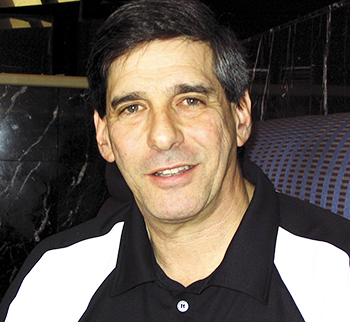Maccabi Canada is sending its largest-ever delegation to the Maccabiah Games in Israel, which kick off July 18 with elaborate opening ceremonies at Teddy Stadium in Jerusalem.
Some 600 athletes, coaches, trainers, doctors and staff make up the Canadian contingent, up from 525 in 2009. Altogether 9,000 sportsmen and women from 71 countries are expected to attend the competition, which is held every four years in Israel.
The Canadian team consists of 200 “open” athletes, competing at the highest level, along with 200 juniors (under 18 or 19, depending on the sport), 100 masters athletes, 35 and older, and a small number of paralympians. It’s the third-largest team at the Games, behind only Israel and the United States.
Canadians will vie for medals in 22 sports. Some events will see five or six Canadian teams compete, such as soccer and basketball, while other sports such as volleyball will also see multiple Canadian entries.
The swimming team alone will feature 22 athletes, “the largest in several Games,” said Maccabi Canada president Tom Bacher.
Bill Izso, an Ottawa-based member of Maccabi Canada’s national athletic committee, said “more outreach” accounts for the growth in the team’s numbers.
Canada won 59 medals at the 2009 Games. “Our expectations [this year] are significantly more than that,” Bacher said.
While he won’t predict a medal count in 2013, he and Iszo believe the Canadian team has a good shot to medal in track and field, swimming, softball and hockey. The volleyball team will feature three nationally ranked players, albeit of the beach variety. Olympian Josh Binstock, along with Sam Schachter and Aaron Nusbaum, form the core of the court volleyball team and should make the Canadian team tough to beat, Bacher said.
Oded Aminov from Vancouver is a triple jump threat, while Canada has always been competitive in open softball (defending champs) and basketball.
Athletic achievement is a centrepiece of the Games, but creating and reinforcing Jewish identity and cementing ties to Israel are key components as well, Bacher said.
With that in mind, Maccabi Canada is bringing its athletes to Israel early to not only prepare for the competition, but to tour the country and to socialize with athletes from other nations, he said.
The Maccabiah Games have a way of spurring Jewish identity, Bacher continued.
A case in point is Christine Merkiewicz, a Toronto resident whose father is Jewish but whose mother is not. As a 16-year-old she competed in track and field at the 2009 Games.
“She had a life-changing experience,” Bacher said.
“As a result of the Maccabiah experience, she came back in the fall of ’09 and had a bat mitzvah. It obviously had an influence on her life.”
Although she’s not competing this year, she made sure her younger brother, Richard, a high-level pole-vaulter, tried out for the team. He made it, Bacher added.
Merkiewicz isn’t the only athlete who experienced a bar or bat mitzvah because of the Games. Just this week, eight Canadian kids, in Israel in advance of the competition, underwent their first bar or bat mitzvahs on Masada during a tour of the site, Bacher said.
Maccabi Canada is also encouraging its young athletes to become more involved in their local communities, he continued. Twenty took part in a cycling event to support Zareinu, a program for developmentally challenged youngsters. Some have attended synagogue services to address the congregations’ young people, while others have spoken about health and sports at Jewish day schools.
Prior to the Games, junior athletes are being housed in a five-star hotel in Jerusalem. They share the hotel with a delegation from Australia.
During the Games themselves, the junior contingent will be housed in Givat Olga, “an IDF hotel” in Hadera, north of Tel Aviv. The hotel features a 500-seat amphitheatre, a pool and first-rate security. It’s also a short walk to the beach.
Housing the youth delegation in an appropriate venue became a top priority after he assumed the president’s mantle, Bacher said.
At the last Games, athletes and their parents complained about inadequate – and even dirty and unsanitary – facilities. The quality of meals was lacking, and transportation to events was inconvenient.
When he took over, Bacher assembled a committee that “put together a set of standards” that would be required of the Maccabi World Union (MWU), which organizes the Games. Bacher told the MWU that without the minimum standards, the Canadians would not be coming.
Afterward, he led a Canadian delegation to Israel to tour potential accommodations. They settled on Givat Olga, which Canadians will share with delegations from Britain, as well as athletes from eight or nine smaller countries.
The rest of the Canadian team will reside in hotels in Metulla, Tel Aviv and Jerusalem.
Two Canadian Olympians, sledge hockey gold medalist Paul Rosen and judo bronze medalist Mark Berger, will be among the Olympians honoured at the opening ceremonies.
The event, expected to attract 32,000 spectators, will include the athletes' march, the lighting of the Maccabiah torch, and live performances by local and international artists, including Kathleen Reiter, a Canadian-born singer and winner of The Voice – Israel.
The next print edition of The CJN is Aug. 1.
